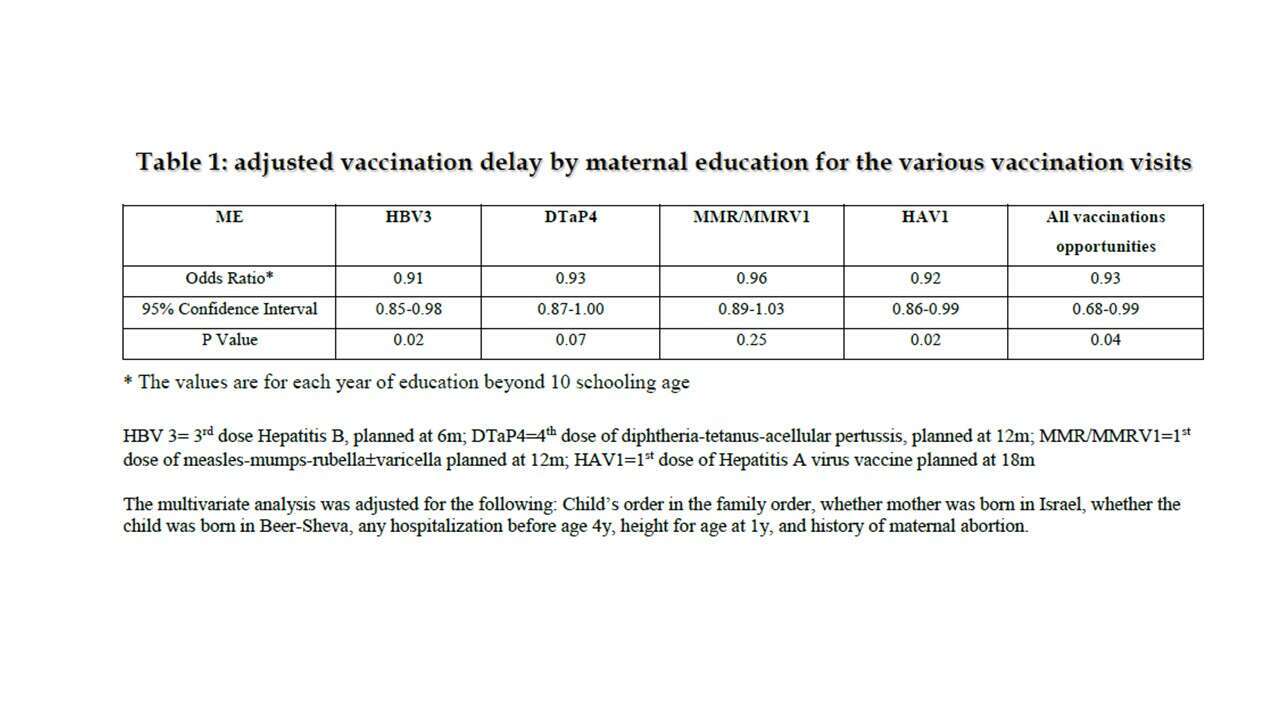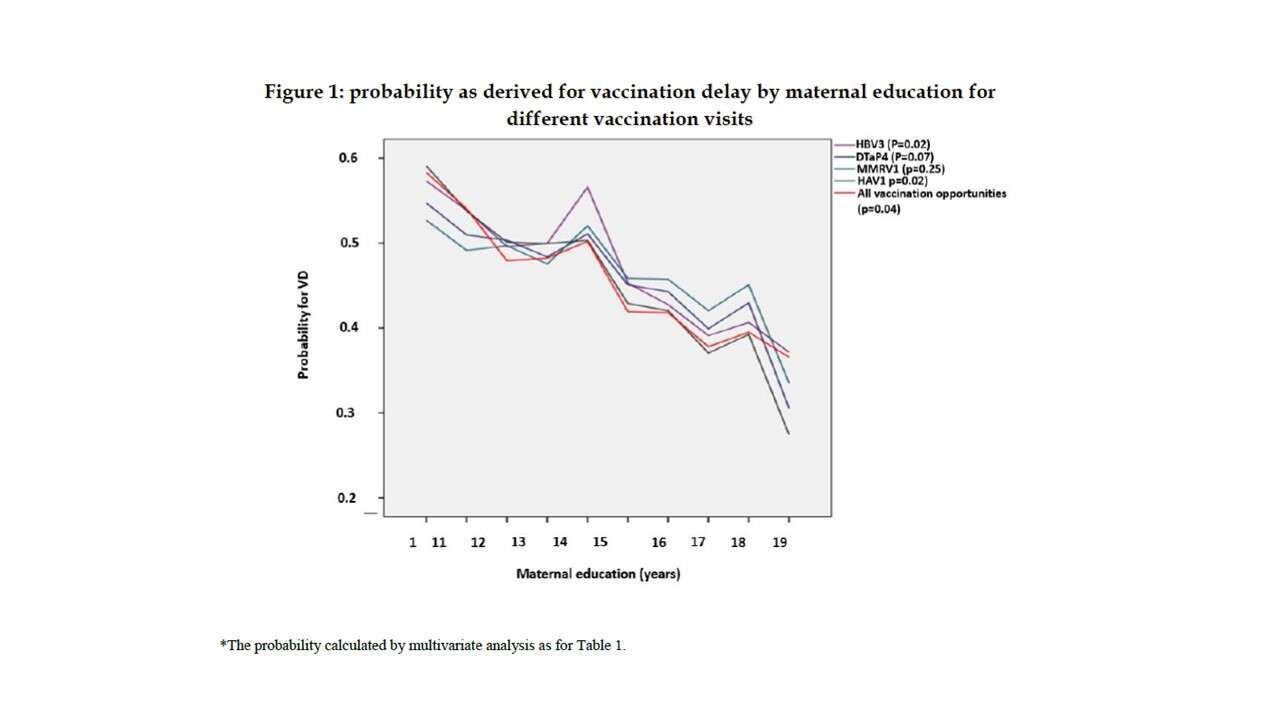Background: Timeliness of vaccination is important, but vaccination delays (VDs) are frequent. The association between VD and maternal education (ME) level, expressed by years of schooling, is controversial. Furthermore, no consensus has been reached for defining VD, ranging from ≥1d to ≥1m after the planned date. None of the reviewed studies defined delay in relative terms accounting for variation the population within which the child lives (i.e. socio-economic-cultural environment, local logistic characteristics). Using a “relative delay” approach, we attempted to determine association between ME level and VD in infants and toddlers.
Methods: We studied Jewish children 2-4y old in southern Israel, vaccinated at 5 Maternal-Child Health Centers (MCHCs), matched for socio-demographic parameters. Age at given vaccination visits was divided in each center into 5 temporal quintiles. Children in the 5th quintile with >7d delay from planned vaccination date were compared to control defined as 3rd quintile. Using multivariate logistic analysis, we studied association between VD and ME (expressed by years of education) controlled for other variables we found significant in uni-variate analysis.
Results: We studied total of 2072 children (range between 398 and 426). Multivariate analysis demonstrated that maternal education was increasingly related to VD probability by 4%-9% for each year of ME, depending on the visit (Table 1). Figure 1 demonstrated graphically the inverse relationship between ME and VD according to multivariate logistic model.
Conclusions: ME is shown to be a component of health behavior regarding preventive medicine.



